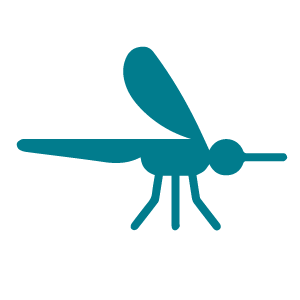

Programme scope
This programme provides technical expertise to support the UKOTs with vector borne disease risk assessment, vector surveillance, and entomological advice on outbreak and epidemic management. Vector control is typically integrated into the environmental health remit within a governments health department and is responsible for delivering a range of activities. These activities include; vector surveillance, community engagement, house inspections, education and outreach, and routine vector control. The programme aims to develop capability within the UKOTs, support the provision of specialist equipment, provide training, develop shared learning across the UKOTs, and provide specialist technical expertise where necessary.
Workstream Focus
The UKHSA Medical Entomology group (MEZE) works to support UKOT Vector Control leads within environmental health departments to develop their programmes around mosquito surveillance, mosquito control, and community engagement. MEZE provides technical expertise on trap-based surveillance, mosquito identification, and data analysis. There is also a focus on e-learning, with a series of modules being designed to assist in the training of vector control officers. Developing networks for those working in vector control is an important part of this workstream, providing linkages with CARPHA and other Caribbean nations.
Example Projects
- Supported the establishment of mosquito surveillance in the British Virgin Islands, Gibraltar and Montserrat.
- Development of a new e-health training package for vector control officers, with an accompanying handbook.
- Collaboration to support vector control departments to develop mosquito surveillance strategies and utilising data to inform control.
- Development and implementation of novel interventions that include modifications to water catchment systems in Montserrat to reduce peri-domestic mosquito breeding habitats
Key Resources
- Medlock et al. 2022. The first 6 years of surveillance of Aedes albopictus (Diptera: Culicidae) in Gibraltar. Journal of the European Mosquito Control Association: 40 (1) - pages: 23 - 35
- Medlock et al. 2023. Snap-shot assessment of adult mosquito (Diptera: Culicidae) densities on the Turks and Caicos Islands, February 2022. Journal of the European Mosquito Control Association: in press.